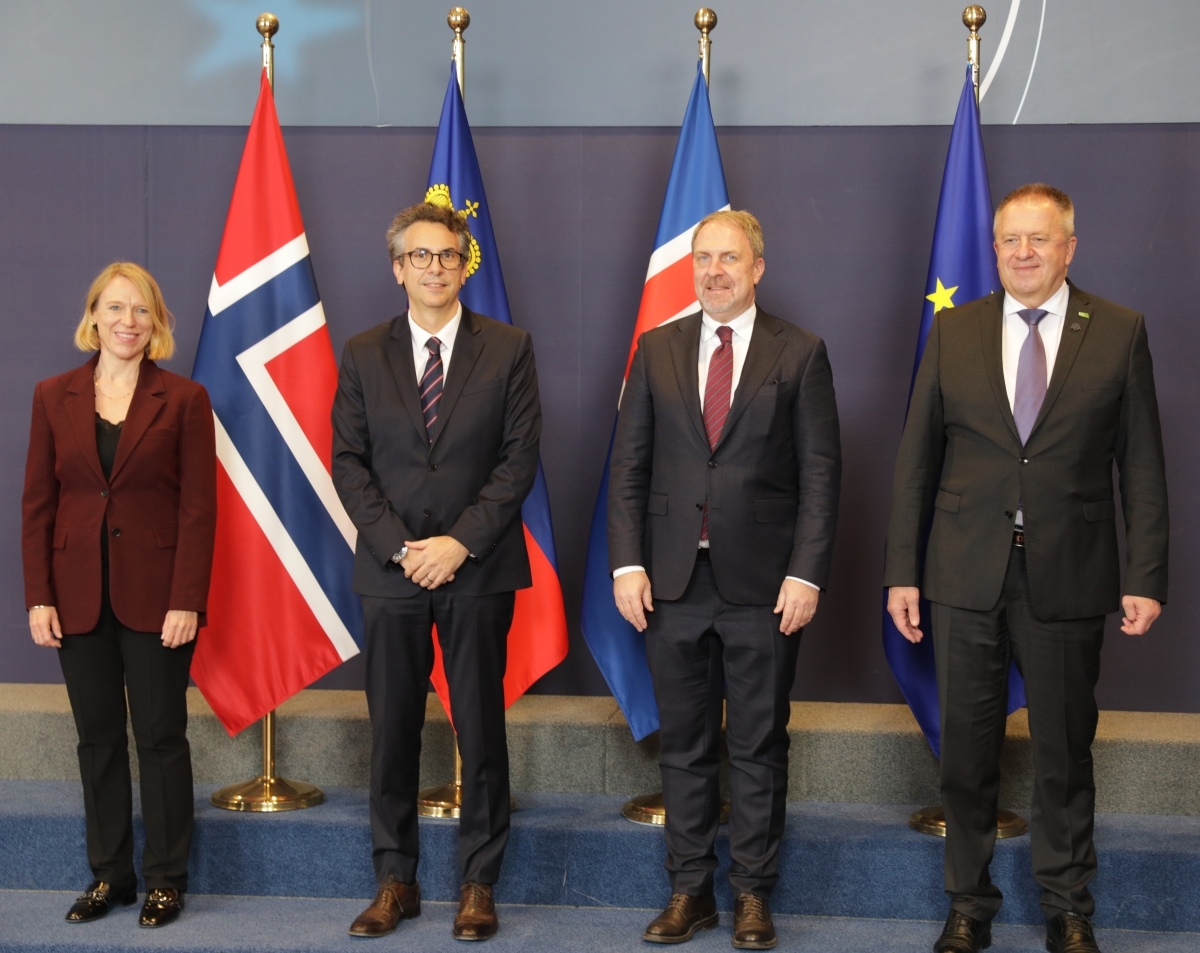
EEA Ministers discuss New Industrial Policy in first physical meeting since the pandemic

On 24 November, the EEA Council took place in Brussels under the presidency of Ms. Anniken Huitfeldt, Minister of Foreign Affairs of Norway. The meeting was co-chaired by Mr Zdravko Počivalšek, Minister of Economic Development and Technology of Slovenia, representing the Presidency of the Council of the European Union. On the EEA EFTA side, the meeting was also attended by Mr Kristján Andri Stefánsson, Ambassador to the EU from Iceland and Mr Pascal Schafhauser, Ambassador to the EU from Liechtenstein. On the EU side, the meeting was attended by members of the Council of the European Union and representatives of the European Commission and the European External Action Service (EEAS).
During the meeting, the Council discussed the New Industrial Policy. “When the EU launched its revised New Industrial Strategy in May this year, it was with the aim to strengthen resilience. Another important element was to enable industry to lead the green and digital transitions and drive Europe’s competitiveness,” said Minister Huitfeldt. She emphasised that “The EEA EFTA States of course share these aims and ambitions. We look forward to discussing how we enable our industries to take a prominent role in the twin transition on a strong competitive basis.”
Following Minister Huitfeldt's introductory words, Hubert Gambs, Deputy Director-General at the Directorate-General for Internal Market, Industry, Entrepreneurship and SMEs in the European Commission, made a statement on the policy representing the EU.
In addition, the EEA Council facilitated a political dialogue between the EEA EFTA countries and the EU. During the dialogue, the parties discussed the ongoing situation in Belarus, the state of EU and EEA relations with China, and the EU’s Strategic Compass for security and defence.
The EEA Council also discussed the functioning of the EEA Agreement. Minister Huitfeldt lauded the cooperation between the EEA EFTA States and the EU during the pandemic. “From the outset, our close alignment enabled us to step up cooperation on research, procurement and the roll-out of vaccines. (…) We resolved challenges to the free movement of goods relating to the export of medical protective equipment and the export scheme for vaccines. We were also able to facilitate the free movement of people through our joint COVID certificate. These achievements have been crucial in promoting normalisation of our societies and the recovery of our economies,” said Huitfeldt.
Minister Huitfeldt furthermore highlighted the need for raising awareness of the EEA Agreement in the populations of the EEA EFTA Member States and in the EU in general. “The merits of the EEA Agreement are not always clear to stakeholders or the wider public. Good knowledge and understanding of the Agreement are essential for it to function smoothly. We need to promote increased knowledge and a broader understanding of EEA Agreement.”
Huitfeldt underlined that the new EFTA House could be of use in such outreach work. “The EFTA House is uniquely positioned to highlight the important role of the EEA Agreement in the future,” said Huitfeldt.
Read the EEA EFTA statement on the occasion of the EEA Council here.
Find photos from the EEA Council here.
This afternoon the #EEACouncil took place in #Brussels under the presidency of Anniken Huitfeldt, Minister of Foreign Affairs of #Norway. pic.twitter.com/ccM4RupTWm
— EFTA Secretariat (@EFTAsecretariat) November 24, 2021